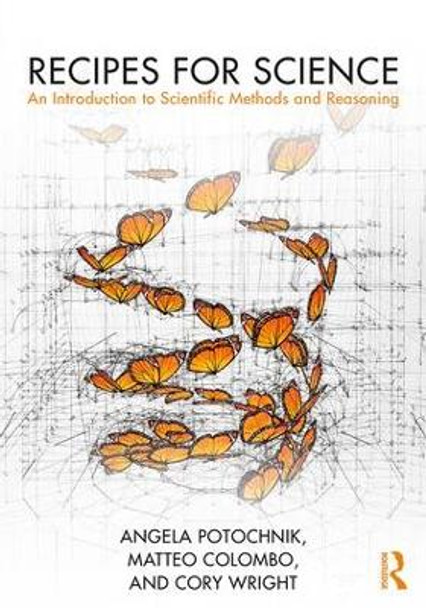Description
Today, scientific literacy is an essential aspect of any undergraduate education. Recipes for Science responds to this need by providing an accessible introduction to the nature of science and scientific methods, reasoning, and concepts that is appropriate for any beginning college student. It is designed to be adaptable to a wide variety of different kinds of courses, such as introductions to scientific reasoning or critical thinking, philosophy of science, and science education. In any of these different uses, the book helps students better navigate our scientific, 21st-century world.
Key Features
- Contemporary and historical examples of science from many fields of physical, life, and social sciences.
- Visual aids to clarify and illustrate ideas.
- Text boxes to explore related topics.
- Plenty of exercises to ensure full student engagement and mastery of the information.
- Annotated 'Further Reading' sections at the end of each chapter.
- Final glossary with helpful definitions of key terms.
- A companion website with author-developed and crowdsourced materials, including syllabi for courses using this textbook, bibliography of additional resources and online materials, sharable PowerPoint presentations and lecture notes, and additional exercises and extended projects.
About the Author
Angela Potochnik is Associate Professor of Philosophy and Director of the Center for Public Engagement with Science at the University of Cincinnati, USA.
Matteo Colombo is Assistant Professor in the Tilburg Center for Logic, Ethics, and Philosophy of Science, and in the Department of Philosophy at Tilburg University, the Netherlands.
Cory Wright is Professor of Philosophy and Director of Graduate Studies at California State University Long Beach, USA.
Reviews
". . . a wonderfully useful description of how science works. The examples are informative and effective. The exercises are imaginative, both thoughtful and thought-provoking. And the components of scientific method are clearly presented with enough detail to see not only how they work but both their strengths and limitations. All the tools are there. You probably knew what tools would be used, but with this book you will understand the variety and application with greater clarity and a better appreciation for the value of science. Recipes for Science will help you sharpen the tools and keep them sharp."
Peter Kosso, in Science & Education
"More often than not students acquire content knowledge about science, deprived from any explicit reflection about the methods, the reasoning and the uncertainties that characterize it. Even laboratory activities can take the form of implementing a cookbook recipe, simply following predetermined steps towards a "correct" answer. But this is not how science is done. If there are recipes, they are open to creativity and they vary enormously. Recipes for Science excellently shows this and provides very useful materials for explicit reflection about the nature of science."
Kostas Kampourakis, University of Geneva, Switzerland
"Recipes for Science is clear and very readable, providing students with a solid philosophical background in issues surrounding scientific reasoning and methodologies, fleshed out with well-chosen, compelling examples. Either on its own, or as a basis from which to build, this will be a welcome text in scientific reasoning and philosophy of science classes."
Jonathan Michael Kaplan, Oregon State University
". . . a wonderfully useful description of how science works. The examples are informative and effective. The exercises are imaginative, both thoughtful and thought-provoking. And the components of scientific method are clearly presented with enough detail to see not only how they work but both their strengths and limitations. All the tools are there. You probably knew what tools would be used, but with this book you will understand the variety and application with greater clarity and a better appreciation for the value of science. Recipes for Science will help you sharpen the tools and keep them sharp."
Peter Kosso, in Science & Education
"More often than not students acquire content knowledge about science, deprived from any explicit reflection about the methods, the reasoning and the uncertainties that characterize it. Even laboratory activities can take the form of implementing a cookbook recipe, simply following predetermined steps towards a "correct" answer. But this is not how science is done. If there are recipes, they are open to creativity and they vary enormously. Recipes for Science excellently shows this and provides very useful materials for explicit reflection about the nature of science."
Kostas Kampourakis, University of Geneva, Switzerland
"Recipes for Science is clear and very readable, providing students with a solid philosophical background in issues surrounding scientific reasoning and methodologies, fleshed out with well-chosen, compelling examples. Either on its own, or as a basis from which to build, this will be a welcome text in scientific reasoning and philosophy of science classes."
Jonathan Michael Kaplan, Oregon State University
Book Information
ISBN 9781138920736
Author Angela Potochnik
Format Paperback
Page Count 348
Imprint Routledge
Publisher Taylor & Francis Ltd
Weight(grams) 840g







